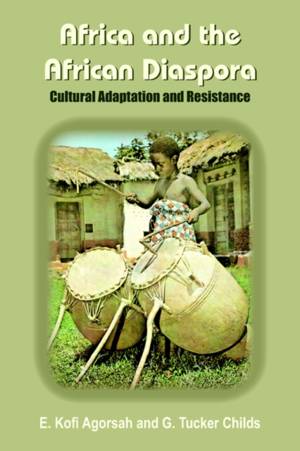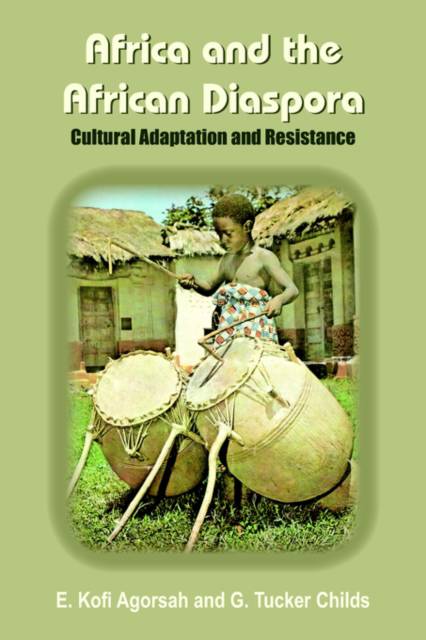
- Retrait gratuit dans votre magasin Club
- 7.000.000 titres dans notre catalogue
- Payer en toute sécurité
- Toujours un magasin près de chez vous
- Retrait gratuit dans votre magasin Club
- 7.000.0000 titres dans notre catalogue
- Payer en toute sécurité
- Toujours un magasin près de chez vous
Africa and the African Diaspora
Cultural Adaptation and Resistance
E Kofi Agorsah, G Tucker Childs, Emmanuel Kofi Agorsah
27,45 €
+ 54 points
Description
Africa and the African Diaspora is the outcome of a symposium held at Portland State University in Portland, Oregon (February 2002), entitled "Symposium on Freedom in Black History," designed to celebrate Black History Month. The major themes of the conference were how Africans both at home on the continent and dispersed abroad, often by forces beyond their control, reacted to oppression and subjugation in seeking freedom from slavery, colonialism, and discrimination. The volume documents the many forms that oppression has taken, the many forms that resistance has taken, and the cultural developments that have allowed Africans to adapt to the new and changing economic, social and environmental conditions to win back their freedom. Oppressive strategies as divide-and-rule could be based on any one of a number of features, such as skin color, place of origin, culture, or social or economic status. People drawn into the vortex of the Atlantic trade and funneled into the sugar fields, the swampy rice lands or the cotton, coffee or tobacco plantations of the new world and elsewhere, had no alternative but to risk their lives for freedom. The plantation provided the context for the dehumanization of disadvantaged groups subjected to exhausting work, frequent punishment and personal injustice of every kind, This book demonstrates that the history and interpretation of these struggles of the oppressed peoples to free themselves have not received proportionate attention and analysis, as have other aspects of that history. For example, although Maroon societies or "runaways", formed colonies of core communities that fought won and preserved freedom in the New World and became the symbol of a special type of nationalism they have never been fully depicted as such in that role in World History and culture. In the discussion of freedom and the activities accompanying it in historical times, we often overlook the minor currents that accompany its attainment either at its initi
Spécifications
Parties prenantes
- Auteur(s) :
- Editeur:
Contenu
- Nombre de pages :
- 332
- Langue:
- Anglais
- Collection :
Caractéristiques
- EAN:
- 9781420827606
- Date de parution :
- 22-12-05
- Format:
- Livre broché
- Format numérique:
- Trade paperback (VS)
- Dimensions :
- 152 mm x 229 mm
- Poids :
- 485 g

Les avis
Nous publions uniquement les avis qui respectent les conditions requises. Consultez nos conditions pour les avis.






